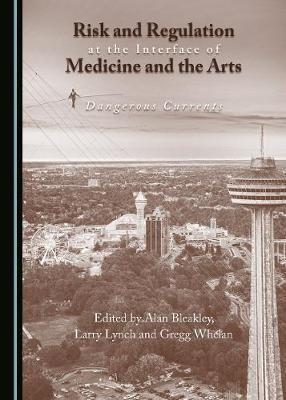Risk and Regulation at the Interface of Medicine and the Arts(English, Hardcover, unknown)
Quick Overview
Product Price Comparison
This book brings together an edited selection of presentations from the Association for Medical Humanities annual conference 2015, held at Dartington Hall, UK, that address the question: How might innovative performing arts help to develop medical education and practice? It includes papers and accounts of both keynote talks and performances, presenting cutting-edge activity, thinking and research in the medical and health humanities. The volume also offers an archive of a visual arts exhibition focused on surgical themes that ran in conjunction with the conference.An introductory chapter situates the conference in the context of Dartington Hall's radical education tradition, while an overview chapter discusses the theme of 'risk and regulation' in contemporary culture, with particular reference to medicine and healthcare. Part I: Selected Keynotes covers three key areas in the conversation between medicine and the arts: 'chance' in health and illness; the contested role of simulation in art and medical education; and risks in introducing arts-based learning to medical students. Part II: Performances archives three innovative and challenging performance pieces presented at the conference, with commentaries and discussion, including a closely-argued philosophical justification for performance art. Part III: Histories offers a historical gaze on: anatomical illustration; plagues represented through art; and poetry written in combat. Part IV: For some, just living is a risk offers a photo-essay on Haiti's symptoms; a photo-record on the regulation of foodways for those living at the edge of subsistence; a medical student's wry account of scepticism towards the use of arts in medical education; and a photo-essay concerning the care of a child with complex disabilities and special needs. Part V: Exhibition 'At the Sharp End of Bluntness' archives deliberately provocative visual work addressing surgical themes and living with cystic fibrosis as 'Slow Death'.


